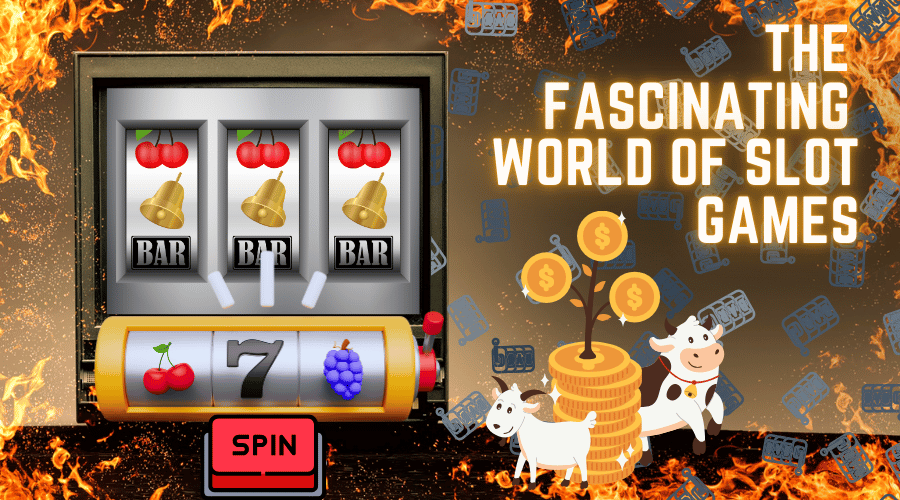
Slot games have long captivated players around the globe, transcending generations and transforming the landscape of gaming. From simple mechanical machines to progressive video slots offering immersive graphics and sound effects, the evolution of slots reflects not only technological advances but also the changing tastes and preferences of players. This article delves into the history, mechanics, popularity, and future of slot games.
A Brief History of Slot Games
In 1887, Charles Fey invented the first mechanical slot machine known as the “Liberty Bell.” This simple machine featured three spinning reels and five symbols: horseshoes, diamonds, spades, hearts, and the Liberty Bell. Players who lined up three Liberty Bells won the jackpot, attracting much attention and creating a new form of entertainment.
The 1900s saw the rise of fruit machines, which replaced the original symbols with fruit icons, paving the way for a broader appeal. These machines used conventional poker hands but were designed to pay out with candies or chewing gum rather than money, making them legal in many jurisdictions where gambling was restricted.
With the advent of technology, particularly the introduction of electronic machines in the 1960s, slot games began to evolve rapidly. Video slots emerged in the 1970s, and by the 1990s, advancements in graphics and animation led to the creation of highly engaging video karcis88 slot games. The introduction of online casinos in the late 1990s revolutionized the industry, allowing players to access their favorite games from the comfort of their homes.
How Slot Games Work
At their core, slot games are based on simple mechanics, making them easy for players of all skill levels. Understanding the key components is essential to enjoy the gaming experience.
- Reels and Symbols: Most slot machines feature three to five reels containing various symbols. Players place their bets and spin the reels, hoping to land combinations of matching symbols. The more symbols match, the higher the payout.
- Paylines: Slots often have a single payline, but modern video slots offer multiple paylines, sometimes going up to hundreds or even thousands. This increases the chances of winning.
- Random Number Generator (RNG): The core technology behind slot games is the RNG, which ensures that every spin is random and fair. It produces a sequence of numbers that correspond to specific symbols on the reels, guaranteeing random outcomes for each spin.
- Bonus Features: Many modern slots include bonus rounds, free spins, multipliers, and wild symbols that enhance the gaming experience. These features make slots more engaging and can lead to significant wins.
- Jackpots: Progressive slots offer the chance to win life-changing amounts by linking multiple machines together. A small portion of each bet contributes to the jackpot, which continues to grow until it is won.
The Popularity of Slot Games
Slot games hold a unique appeal that contributes to their popularity. Here are several reasons why players flock to these machines:
- Simplicity: Slot games require no special skills, making them accessible to everyone. Players can easily understand the mechanics, place their bets, and enjoy the thrill of spinning the reels.
- Variety: The sheer variety of slot games available caters to all preferences. From classic fruit machines to themed video slots based on movies, mythologies, and fantasy worlds, there is something for every player.
- Potential for Big Wins: The allure of winning significant jackpots is a major draw. Many players are attracted to the possibility of hitting a life-changing payout, especially in progressive slot games.
- Social Experience: With the rise of online casinos, many platforms now offer multiplayer slots and live dealer games, creating a social environment where players can interact, share experiences, and build a community.
- Mobile Accessibility: The proliferation of smartphones and tablets has made it easier for players to access slot games anytime and anywhere. This convenience has fueled their popularity, as more people are willing to play while on the go.
The Future of Slot Games
Slot games hold a unique appeal that contributes to their popularity. Here are several reasons why players flock to these machines:
Here are several trends and developments shaping the future of this industry:
- Virtual Reality (VR) and Augmented Reality (AR): The integration of VR and AR technologies into gaming promises to offer immersive experiences like never before. Players may find themselves stepping into a virtual casino, interacting with the environment, and engaging with other players in real time.
- Gamification Elements: The concept of gamification involves incorporating game-like elements into non-gaming contexts.
- Cryptocurrency Integration: With the rise of cryptocurrencies and blockchain technology, some casinos and game developers are exploring ways to integrate these digital currencies into slot games. This could offer players more secure and anonymity-ensured transactions.
- Enhanced Graphics and Storytelling: As technology improves, so does the quality of graphics and storytelling in slot games. Players can expect more cinematic experiences with rich narratives and innovative gameplay mechanics.
- Increased Focus on Responsible Gaming: As the gaming industry evolves, there is a growing emphasis on responsible gaming practices. Developers and casinos are likely to implement features that promote mindful gaming, helping players manage their spending and time while playing.
Conclusion
From humble mechanical machines to advanced video slots with immersive gameplay, they continue to evolve and capture the hearts of players worldwide. As technology advances and new trends emerge, the future of slot games looks promising, ensuring that they remain an integral part of the gaming landscape for years to come. Whether you’re a casual player or a seasoned gambler, the allure of slot games promises excitement, entertainment, and the thrill of the unexpected.





